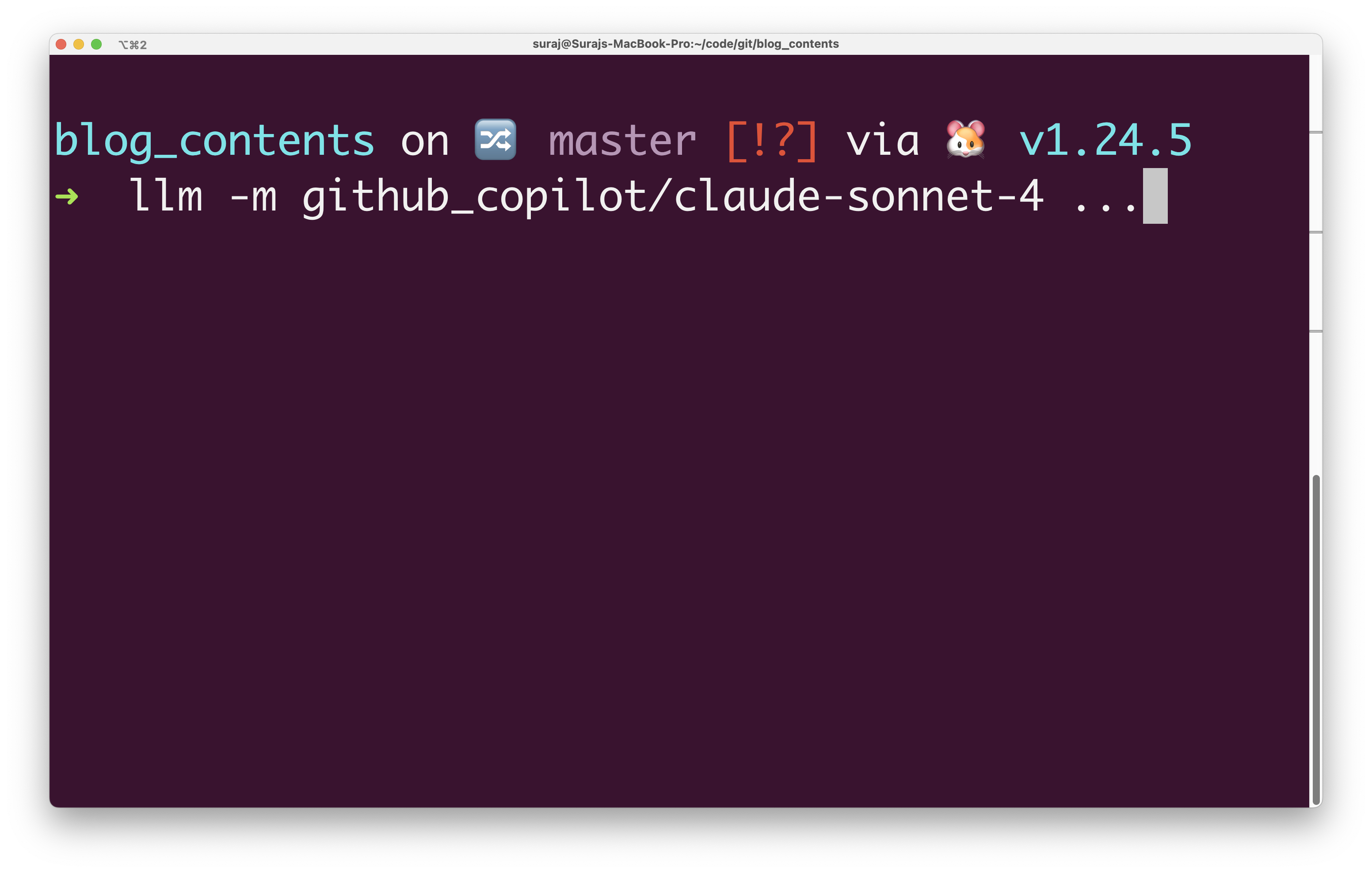Let’s face it, writing commit messages is tedious work. I’ve been using LLMs to write my commit messages for a while now. But until now, I used to copy the diffs manually and paste it into some chat window and ask the LLM to write a commit message.
I’ve been trying various CLI tools viz. OpenAI’s Codex CLI, Google’s Gemini CLI, etc. But codex lacks piping support and Gemini CLI cannot be used with internal codebases! I can use GitHub Copilot extension in VS Code with internal codebases, but I wanted a CLI tool that I can use in my terminal. GitHub Copilot is now free for all GitHub users, so this is useful for everyone.
I’ve been aware of the CLI tool llm for a while now. The project defines itself as follows:
A CLI tool and Python library for interacting with OpenAI, Anthropic’s Claude, Google’s Gemini, Meta’s Llama and dozens of other Large Language Models, both via remote APIs and with models that can be installed and run on your own machine.
This llm tool has a plugin mechanism, where others can write extensions to use different LLMs. Here is an extensive list of all the supported plugins.
Coming back to my use case, I came across this plugin called llm-github-copilot, which allows you to use GitHub Copilot’s LLMs directly from the command line. This is exactly what I was looking for! Rest of this post is a quick guide on how to use this tool to write meaningful commit messages using LLMs.
Installation
Install llm CLI either using uv or other tools of your choice. I prefer uv as it is cleaner and faster. Here are more ways to install the llm CLI.
uv tool install llm
Install the llm CLI’s GitHub Copilot extension like this:
llm install llm-github-copilot
One-Time Configuration
Login to your GitHub account to enable the llm-github-copilot extension:
llm github_copilot auth login
Find the supported model by running the following command:
llm github_copilot models
Set a default model to use:
llm models default github_copilot/claude-opus-4.6
Usage
Generate commit messages:
git diff master | llm "Look at this diff and write a detailed commit message"
You can change the git diff command or the instructions as per your requirements. Here is another example to generate commit messages for staged changes:
git diff --cached | llm "Write a commit message for these staged changes"
Request Entity Too Large
Sometimes the llm CLI can return an error like this:
Error: Request Entity Too Large
One way to avoid this is to reduce the amount of content you are passing to the llm CLI.
Using the non-default model
If you want to use a different model than the default one, you can specify it like this:
llm -m github_copilot/gpt-4o ...
Conclusion
Using LLMs to write meaningful commit messages can significantly improve your productivity and the quality of your codebase. The llm CLI tool with the GitHub Copilot extension makes it easy to generate these messages directly from your terminal, without needing to switch contexts or copy-paste between applications.
Although LLMs generate good commit messages, they may not always be exactly what you want. You should always review the generated messages, make necessary edits, and ensure they follow your project’s commit message conventions.
P.S
I learnt that you can also use OpenAI’s Codex CLI to read from the standard input and generate commit message. The CLI has to be invoked with codex exec. Here is how you can do that:
git diff --cached | codex exec "Write a commit message for these staged changes"
